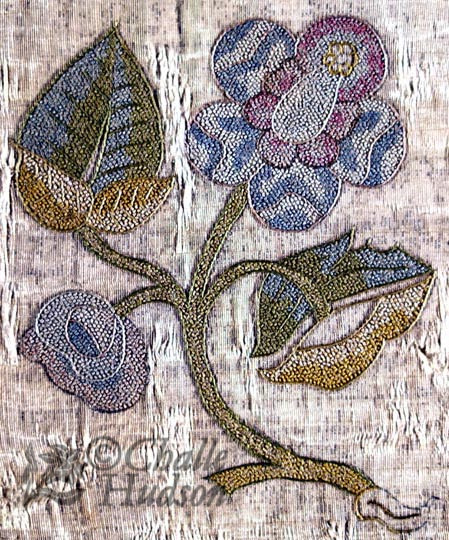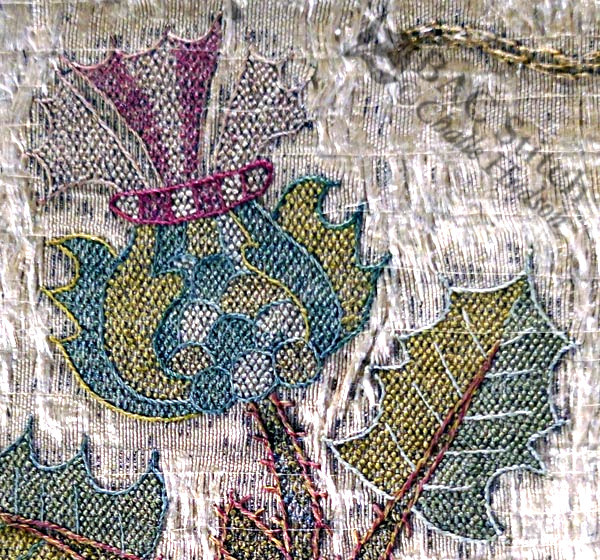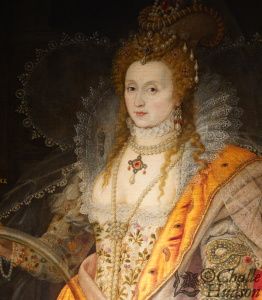Bacton Altar Cloth Research Group
A Collaborative Interdisciplinary Group Examining the Sources, Uses, and Re-Uses of the Fabric that became the Bacton Altar Cloth
The Bacton Altar Cloth
A Rare Surviving Elizabethan Textile
Like many exquisite fabrics re-used in English churches as altar clothes and vestments, this heavily embroidered cloth of silk and silver first belonged to a wealthy member of the court, perhaps even Queen Elizabeth I. The arrangement of botanical motifs strongly suggests that it was created during the final years of her reign, while the additional embroidered birds, insects, animals, people, and caterpillars indicate that the cloth was further embellished to adapt to changing fashion before it found its way to the parish church of St. Faith, Bacton, Herefordshire. It was most likely here that the fine fabric was cut and pieced to cover a small table.
In 2015 the Bacton Altar Cloth was removed from the display case on the north wall of the parish church where it had hung in a frame for 106 years. After extensive conservation, the embroidery was put on display at Hampton Court Palace 2019-2020. Photographs on this site were taken by members of the Bacton Altar Cloth Research Group while the cloth was undergoing conservation and on exhibit at the Palace.
Our Research
What We See
To understand the Bacton Altar Cloth we began by trying to identify species depicted, match motifs, and locate possible sources for the designs.
What It Means
The collage of plants, animals, and insects on the Bacton Altar Cloth and other contemporary textiles could have been ‘read’ and understood by an educated Elizabethan viewer, even to the extent of communicating complex thoughts and ideas.








